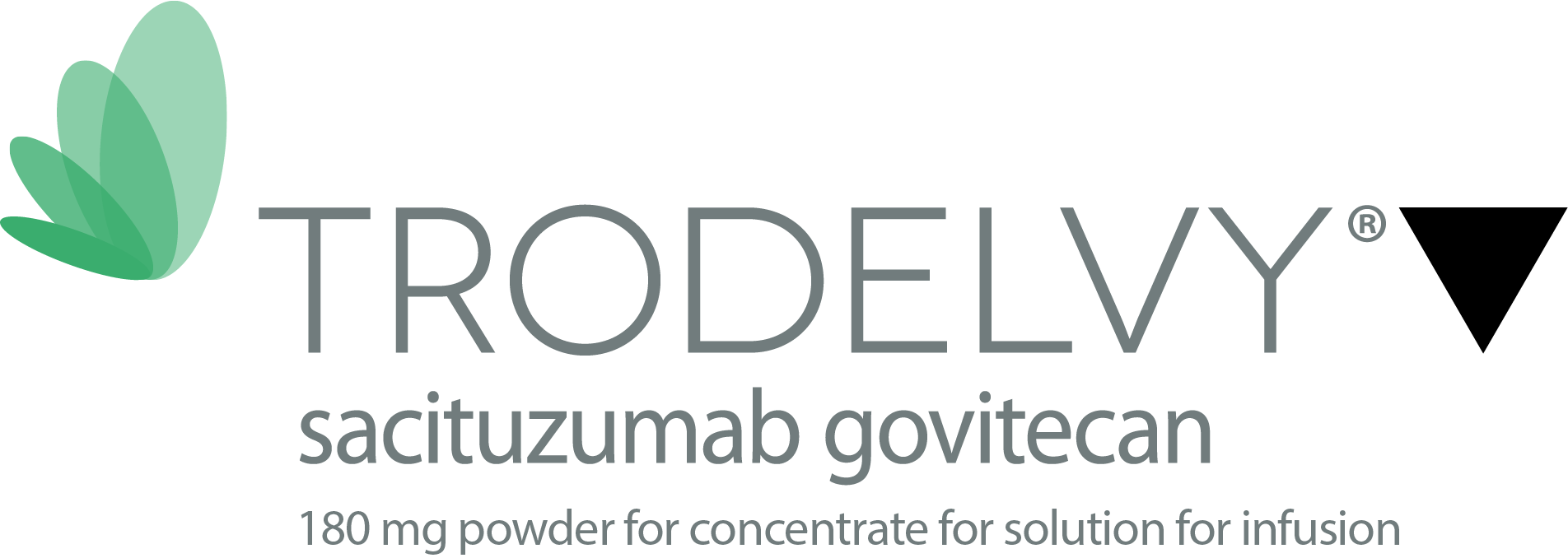*The ASCENT trial was an international, multicentre, open-label, randomised, phase 3 clinical trial that evaluated Trodelvy® as compared with treatment of single-agent chemotherapy of the physician’s choice (eribulin, vinorelbine, gemcitabine, or capecitabine) in 529 patients with second-line or later mTNBC.2
†The efficacy results in all patients (N=529) were consistent with the population without known brain metastases (median PFS: 4.8 months vs 1.7 months [HR: 0.43; 95% CI: 0.35–0.54; p<0.001]; median OS: 11.8 months vs 6.9 months [HR: 0.51; 95% CI: 0.41–0.62]).1,2
‡IMMU-132-01 (NCT01631552) was a phase 1–2, multicentre, single-arm clinical trial that enrolled 108 patients with mTNBC who had received at least two prior treatments for metastatic disease.1
IMMU-132-09 (NCT03901339) was an international, multicentre, open-label, randomised, phase 3 clinical trial that evaluated Trodelvy® as compared with treatment of single-agent chemotherapy of the physician’s choice (eribulin, vinorelbine, gemcitabine, or capecitabine) in 543 patients with unresectable locally advanced or metastatic HR-positive, HER2-negative breast cancer who have received endocrine-based therapy, and at least two additional systemic therapies in the advanced setting
§Primary HRQoL domains: Global health status/quality of life, physical functioning, role functioning, pain, and fatigue. Selected as clinically relevant in the target population and used as primary HRQoL in other published studies.3

